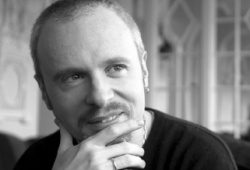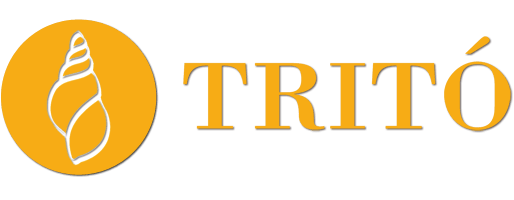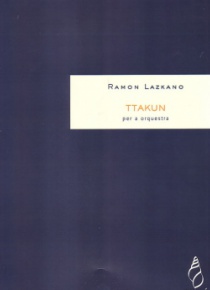
Ramon Lazkano attended piano and composition classes at the San Sebastian Higher Conservatory of Music, where he obtained a Higher Degree in Composition. Holding a Gipuzkoako Foru Diputazioa scholarship, he was accepted at the Conservatoire National Supérieur de Musique of Paris, where he studied composition and orchestration with Alain Bancquart and Gérard Grisey, and was awarded a First Prize of Composition in 1990. A Sasakawa Foundation Scholarship allowed him to follow the studies of composition and analysis in Montreal with Gilles Tremblay. At his return to Paris, he studied orchestra conducting with Jean-Sébastien Béreau and Arturo Tamayo, and received a DEA degree in 20th Century Music and Musicology from the Ecole des Hautes Etudes en Sciences Sociales.
His piano concerto Hitzaurre Bi earned him, at the age of 26, the prestigious Prince Pierre de Monaco Foundation Prize. Shortly afterwards, in 1997, a jury chaired by Luciano Berio gave him the Jerusalem Leonard Bernstein Composition Prize for his Auhen Kantuak. He was also a prizewinner of the Institute of Music and Drama Arts, the Colegio de España, and the Gaudeamus Foundation. While resident with the Joven Orquesta Nacional de España, he had the opportunity of composing several pieces which were performed, among others, at the Auditorio Nacional de Madrid and Berlin Konzerthaus. The Stanford University invited him in 1999 to introduce his music and that same year he was appointed, along with Luis de Pablo, resident at the Musica Festival and the Strasburg Conservatoire. His residence in Rome (first as a scholar of the Spanish Academy of History, Archaeology & Fine Arts, then of the Villa Medici Academy of France) allowed him to carry out a reflection on what composition is and what it means today, focusing mainly on thoughts about intertextuality and the saturation, silence and experience of sound and time, all of which giving birth to emblematic pieces such as Ilunkor (commissioned by the Euskadiko Orkestra Sinfonikoa) and Lur-Itzalak (commissioned by the Printemps des Arts of Monte Carlo).
His works have been played in many countries (France, Germany, Holland, Israel, Spain, Italy, Ukraine, Denmark, United Kingdom, Russia, USA, Austria...) in the framework of prestigious festivals such as: Musica (Strasbourg), Ars Musica (Brussels), Présences in Radio-France, Philharmonic Green Umbrella New Music series (Los Angeles), Gaudeamus Muziekweek (Amsterdam), International Society of Contemporary Music (Copenhagen), Festival of Contemporary Music (Alicante, Sp). His music has been played by such renowned orchestras and ensembles as the Philharmonic Orchestra of Radio France, the Symphony Orchestra of Jerusalem, the Young National Orchestra of Spain, the Symphony Orchestra of Euskadi, the Symphony Orchestra of Bilbao, the Spanish Broadcast Symphony Orchestra, the Orchestra of the Teatre Lliure of Barcelona, the Ensemble Gaudeamus, the Ensemble Proxima Centauri, the Ensemble Barcelona 216, the Conjunto Ibérico de Violoncellos, Ensemble Wiener Collage - and he has been commissioned by the Ministry of Culture (France), the Basque Government, the Don Juan de Borbón Foundation, Radio France, ABRSM of London, the Juan March Foundation, etc... His orchestration of Mussorgsky’s Songs and Dances of the Death was commissioned by the Saint-Denis Music Festival and premiered in June ’94 by Dmitri Hvorostonsky.
As a conductor, he has notably been in charge of the ensemble OSTOTS (soloists of the Symphony Orchestra of Euskadi) for contemporary music in the Basque Country, whose concerts have been performed throughout Spain and recorded by the Spanish National Radio and the Basque Country Radio, thus promoting the dissemination of the repertoire of Basque composers.
He was head of the seminar "Historical and analytical course of the 20th Century learned music" for the continuous training of the music teaching staff of the Council of Education of the Basque Government (1996-98), head of the seminar "Trends in Present Day Music" at the University of the Basque Country (1994), and has been invited to participate at the courses on Luis de Pablo and on Francisco Escudero given by the University of the Basque Country, as well as to the 4th International Congress of Ontology (2000). He is the author of the critical edition of the opera Las Golondrinas by J. M.& R. Usandizaga for the Institute "Complutense" of Music Science of Madrid, premiered at the Teatro Real of Madrid in May ’99.
Ramon Lazkano gave orchestration lessons at the Strasburg Conservatoire and composition lessons at the Higher Academy of Music of Catalonia in Barcelona. By the time being, he is professor of orchestration at the Higher Academy of Music of the Basque Country "Musikene".
His piano concerto Hitzaurre Bi earned him, at the age of 26, the prestigious Prince Pierre de Monaco Foundation Prize. Shortly afterwards, in 1997, a jury chaired by Luciano Berio gave him the Jerusalem Leonard Bernstein Composition Prize for his Auhen Kantuak. He was also a prizewinner of the Institute of Music and Drama Arts, the Colegio de España, and the Gaudeamus Foundation. While resident with the Joven Orquesta Nacional de España, he had the opportunity of composing several pieces which were performed, among others, at the Auditorio Nacional de Madrid and Berlin Konzerthaus. The Stanford University invited him in 1999 to introduce his music and that same year he was appointed, along with Luis de Pablo, resident at the Musica Festival and the Strasburg Conservatoire. His residence in Rome (first as a scholar of the Spanish Academy of History, Archaeology & Fine Arts, then of the Villa Medici Academy of France) allowed him to carry out a reflection on what composition is and what it means today, focusing mainly on thoughts about intertextuality and the saturation, silence and experience of sound and time, all of which giving birth to emblematic pieces such as Ilunkor (commissioned by the Euskadiko Orkestra Sinfonikoa) and Lur-Itzalak (commissioned by the Printemps des Arts of Monte Carlo).
His works have been played in many countries (France, Germany, Holland, Israel, Spain, Italy, Ukraine, Denmark, United Kingdom, Russia, USA, Austria...) in the framework of prestigious festivals such as: Musica (Strasbourg), Ars Musica (Brussels), Présences in Radio-France, Philharmonic Green Umbrella New Music series (Los Angeles), Gaudeamus Muziekweek (Amsterdam), International Society of Contemporary Music (Copenhagen), Festival of Contemporary Music (Alicante, Sp). His music has been played by such renowned orchestras and ensembles as the Philharmonic Orchestra of Radio France, the Symphony Orchestra of Jerusalem, the Young National Orchestra of Spain, the Symphony Orchestra of Euskadi, the Symphony Orchestra of Bilbao, the Spanish Broadcast Symphony Orchestra, the Orchestra of the Teatre Lliure of Barcelona, the Ensemble Gaudeamus, the Ensemble Proxima Centauri, the Ensemble Barcelona 216, the Conjunto Ibérico de Violoncellos, Ensemble Wiener Collage - and he has been commissioned by the Ministry of Culture (France), the Basque Government, the Don Juan de Borbón Foundation, Radio France, ABRSM of London, the Juan March Foundation, etc... His orchestration of Mussorgsky’s Songs and Dances of the Death was commissioned by the Saint-Denis Music Festival and premiered in June ’94 by Dmitri Hvorostonsky.
As a conductor, he has notably been in charge of the ensemble OSTOTS (soloists of the Symphony Orchestra of Euskadi) for contemporary music in the Basque Country, whose concerts have been performed throughout Spain and recorded by the Spanish National Radio and the Basque Country Radio, thus promoting the dissemination of the repertoire of Basque composers.
He was head of the seminar "Historical and analytical course of the 20th Century learned music" for the continuous training of the music teaching staff of the Council of Education of the Basque Government (1996-98), head of the seminar "Trends in Present Day Music" at the University of the Basque Country (1994), and has been invited to participate at the courses on Luis de Pablo and on Francisco Escudero given by the University of the Basque Country, as well as to the 4th International Congress of Ontology (2000). He is the author of the critical edition of the opera Las Golondrinas by J. M.& R. Usandizaga for the Institute "Complutense" of Music Science of Madrid, premiered at the Teatro Real of Madrid in May ’99.
Ramon Lazkano gave orchestration lessons at the Strasburg Conservatoire and composition lessons at the Higher Academy of Music of Catalonia in Barcelona. By the time being, he is professor of orchestration at the Higher Academy of Music of the Basque Country "Musikene".
Publications (3)
Ramon LazkanoAll the products
Ramon Lazkano
Works
Ramon LazkanoFor Orchestra
| Title | |
|---|---|
| Ttakun, for orchestra | Full Orchestra |




